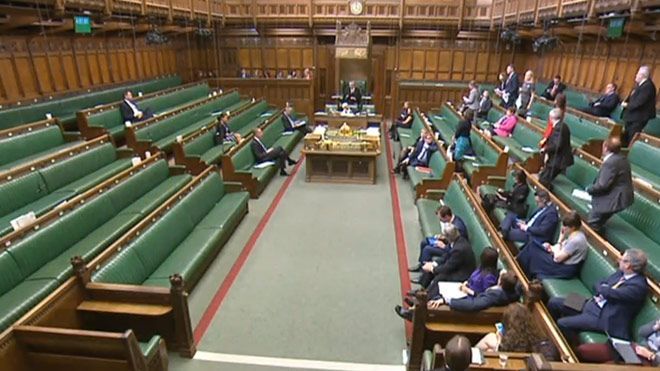
Union campaign scores a win with big changes made to Trade Union Bill
It’s been a difficult 10 months since the Government introduced the Trade Union Bill. The co-ordinated campaign against these damaging proposals has taken a huge effort from across the union movement.
But the bill that passed the Commons today was hugely reduced from what the government had originally proposed - an amazing turnabout for a flagship bill at the start of a new parliament.
The Trade Union Bill is a textbook example of how not to develop legislation. A populist (and innumerate) policy on strike ballots and a sly dig at Labour party funding made it into the Conservative manifesto. Then over the months afterwards, the bill became bloated with further proposals for new trade union rules that ministers thought they might get away with.
It was clear from the moment the bill was introduced that they hadn’t done their homework. Consultation was limited and rushed – and we waited months for a government response. The impact assessments were rated not fit for purpose by the government’s own watchdog (and in one case, notes to insert evidence later were left in a published document!). Vital evidence wasn’t made available so MPs and peers could scrutinise the bill fully. A series of ill-prepared government witnesses made a shambles of the Commons scrutiny committee stage.
The trade union movement’s job was to expose just how ill-thought-through the bill was, and to build the campaign against it. And it worked: in recent months the Government have looked increasingly isolated. Pretty much every stage of the parliamentary process has seen concessions from ministers, dealing with growing concern in their own ranks, and growing anger at the shoddy nature of the bill during its progress through the Lords. And today, the government has finally thrown in the towel and conceded on some of the big defeats they suffered in the Lords.
The bill is now much shorter – shorn of some of the most damaging proposals. The government has to date:
- DROPPED extreme measures to restrict protest, such as giving employers detailed plans for pickets and social media campaigns two weeks in advance, or making everyone on a picket line show their personal data to the police, employers or anyone who asked to see it.
- SCALED BACK the double threshold for strike ballots in “important public services”, to avoid capturing hundreds of thousands of ancillary workers.
- ABANDONED plans to ban union subscriptions via payroll (check-off), provided the union pays payment processing costs (as many already do).
- CONCEDED safeguards against politicisation of the role of the union regulator (Certification Officer) and reduced its costs to unions.
- WATERED DOWN plans to restrict union political funds. Changes will no longer apply to existing members, and the cost and effort of new requirements will be much reduced.
- AGREED TO a review of letting unions use online methods for strike ballots. This would help increase turnouts, as we know postal balloting suppresses them.
- ADDED SAFEGUARDS to a new reserve power to cap union facility time. This will happen now only after at least 3 years of research and negotiation with employers.
But make no mistake, there are still some harmful proposals that could become law, including:
- Unfair strike ballot turnout thresholds – including a huge double threshold for so-called “important public services”.
- Rules about identifying picket leaders to police that worry trade unionists in light of the construction blacklisting scandals.
- New membership rules that seem to be designed to cost unions time and money, and increase employers’ opportunities to use the courts to stop strikes.
Next step is to see if the Lords will insist on their amendments that the government refused. But even if the bill passes, there will still be arguments to come on the mass of secondary regulations and codes of practice still to be published. And there will be a major battle around the proposals to remove the long-standing ban on employers using agency workers to break strikes. This was never part of the bill, but progressing alongside it. It’s disappeared for now, but we suspect it will be back.
So: today is a day to be proud. None of these positive changes would have happened without the trade union movement uniting to mount a major campaign against the bill. Union members marched, emailed, signed petitions, held local events, joined consultations, told their stories on billboards, and took part in the biggest ever mass lobby of MPs. We’ve had amazing support from allies across civil society, including human rights organisations, public sector employers and politicians of all parties (including principled positions taken by many Conservative MPs and Peers).
There’s more to do, but union members everywhere can feel justly proud today in what we’ve achieved - and in what that tells us about the power, relevance and vitality of our trade union movement.
Stay Updated
Want to hear about our latest news and blogs?
Sign up now to get it straight to your inbox

